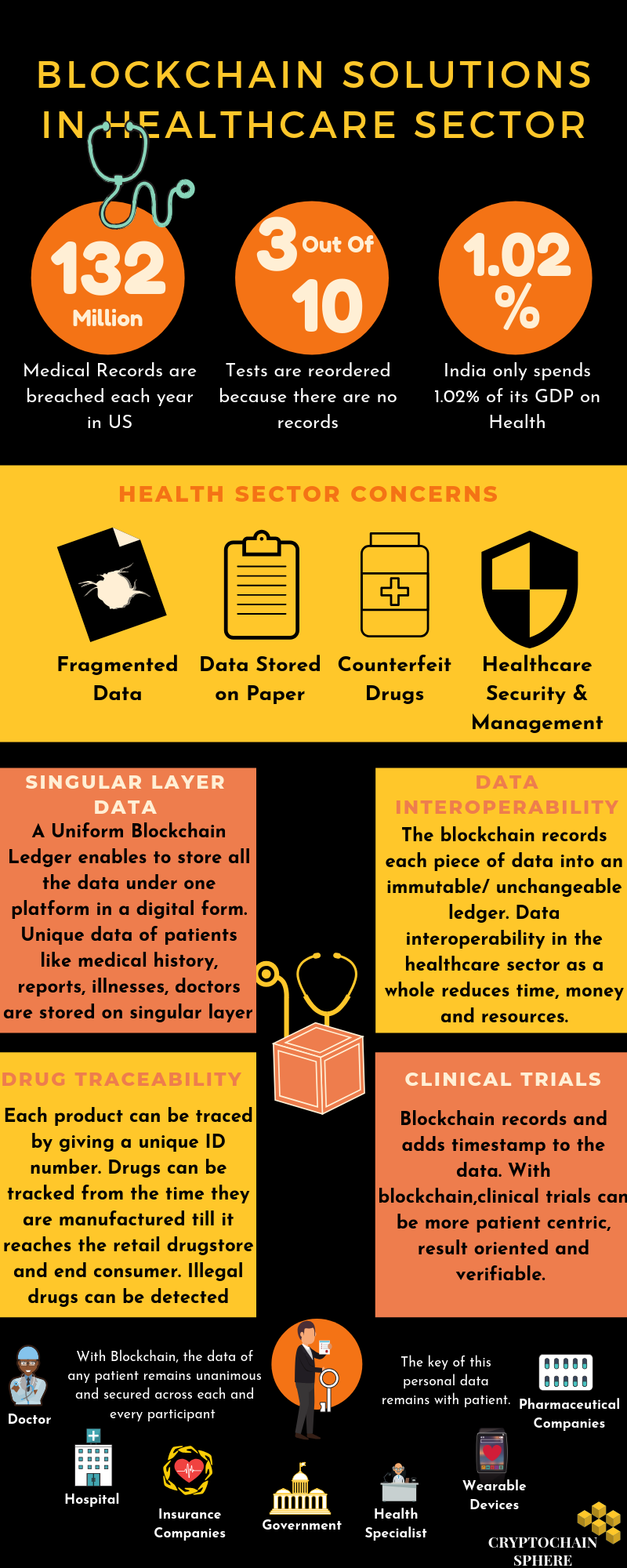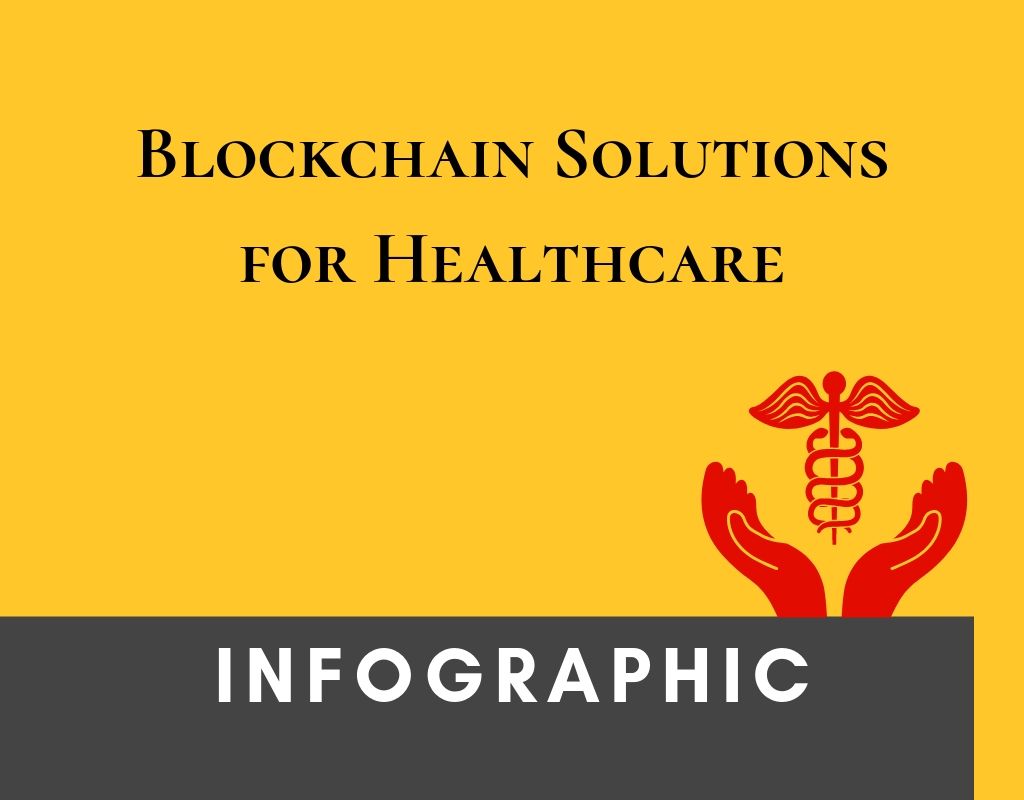Blockchain solutions to enhance the areas of medical and health industry.
Infographic: Blockchain Solutions for Healthcare
We have explored in detail on the current issues faced by healthcare as well as the value that blockchain technology brings to the current healthcare industry. Refer to this post for a better understanding of the infographic providing blockchain solutions relevant to healthcare.

Healthcare Concerns
Any country, developing or developed, has growing concerns in the healthcare department. Improper management, lack of any real technological innovation, breach of health records, violation of patient’s private information, multiple streams without a uniform platform- are a few common problems across the global healthcare sector.
Take a look at these figures to understand the seriousness of the situation.
- In the US over 132 million medical data records are being breached by hacking or IT incident
- 3 out of 10 tests are reordered because the results cannot be found.
- India only spends 1.02% of its total GDP on healthcare.
Blockchain Platform Solutions
Healthcare lacks any real horizontal innovation since all these years. Technological innovation like Blockchain technology can give bring relevant changes to the face of healthcare.
Blockchain technology provides a decentralized and uniform platform which can build trust among the unknown members and digitally record each piece of data. With such a tool there can be great improvements made to different parameters of the healthcare industry such as clinical trials, drug/ pharmaceutical supply chain, easy exchange of data, and a patient-centric system.
Now, let’s take a look at each of them individually to extract use cases of the blockchain platform for each of these divisions.
Blockchain Applications Examples
1) Singular Health Data Layer
A Uniform Blockchain Ledger enables to store all the data under one platform in a digital form. Unique data of patients like medical history, reports, illnesses, doctors are stored on a singular layer.
The recording and storing of all the data under one platform help in eliminating the need for multiple health records. The patient does not have to carry out two separate medical reports while consulting two different doctors
The entire system is patient-centric. Hence, anyone who wants to access the information can only do so, after taking permission from the patient.
2) Data Interoperability
The blockchain records each piece of data into an immutable/ unchangeable ledger. Data interoperability in the healthcare sector as a whole reduces time, money and resources.
Example- The patient consults his home doctor for a specific problem. The home doctor orders some tests and recommends him to see a health specialist. The blockchain has recorded each piece of data such as the test results, home doctor observations, patient’s medical history, drugs given to him, etc. The health specialist, after taking permission from the patient, can access all the pieces of information. This helps him decide better recommendations as well as saves money and resources for the patient.
Therefore, blockchain provides easy and protected data exchange- all under one platform.
3) Drug Traceability
Each product can be traced by giving a unique ID number. Drugs can be tracked from the time they are manufactured until it reaches the retail drugstore and end consumer. Illegal drugs can be detected.
Counterfeit and illegal drugs is a rising issue in healthcare. Without an appropriate tool, this can further cause a global catastrophe in the sector. Blockchain provides a solution to trace and track each product in the cycle.
Starting from the place the drug got manufactured until it reaches the end consumer. Furthermore, the data is transparent and hence can be given access to all the important authorities as well as the end customer.
Also, blockchain immutability makes it difficult to change or remove any data. This further ensures that data is not modified.
4) Clinical Trials
Blockchain records and adds a timestamp to the data. With blockchain, clinical trials can be more patient-centric, result-oriented and verifiable.
A blockchain-enabled clinical trial can give a much better analysis of the R & D on clinical trials in healthcare. Millions are spent each year for clinical trials and better medical solutions for life-threatening diseases. If all the research is pooled on a singular layer, which is accessible to all the relevant scientists of the world- a series of possible solutions can be derived.
Concluding Thoughts
Blockchain technology can prove to be a valuable technological solution in healthcare. However, the implementation is going to take time when we consider it on a global scale.
Also, there is still a persistent issue of scalability in the blockchain. To deploy technology at such a wide and global sector requires a system to be easily scalable as well as fast.
Furthermore, a lot of countries have not yet regulated industry specifications of blockchain. While there are a lot of possibilities, many startups fear the imposed restrictions.

